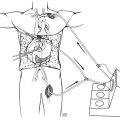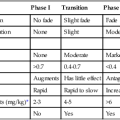
Want to start a family after having a vasectomy? There are a lot of things to look into when it comes to the chances of getting pregnant after vasectomy, despite the fact that it might seem like a long shot.
It can be a long road to find out what causes people to become pregnant after having a vasectomy, whether they have changed their minds, want to have more children, or are just interested in what might happen. Let’s figure out this interesting subject together!
Understanding Vasectomy and Reversal
Let’s start by talking about what a vasectomy is. A vasectomy cuts or blocks the tubes that carry sperm from the testicles to the penis. It is a lifelong way for men to avoid having children.
This keeps sperm and semen from mixing when you ejaculate, which makes it very good at stopping pregnancy. Vasectomy reversal, on the other hand, includes rejoining these tubes so that sperm can pass through them again. This makes it more likely that a partner will get pregnant.
Time Since Vasectomy
Time is one of the most important things that changes your chances of getting pregnant after a vasectomy. More than a year has passed since your vasectomy.
This makes it less likely that you will get pregnant. Because scar tissue builds up over time and blocks the tubes more often, this is the case. In fact, the chances of getting pregnant drop by a lot 15 years after a vasectomy.
Age
Both men and women can have children after a certain age. Men’s sperm quality goes down with age, which can make it harder for them to get pregnant, even after they’ve had a vasectomy reversed. Of course, women’s fertility also decreases with age, so it’s important to think about the ages of both partners when planning a baby after a vasectomy.
Success Rates of Reversal Surgery
How likely it is that vasectomy reverse surgery will work also has a big effect on your chances of getting pregnant after having one. The chance of success for reverse surgery goes down the longer it has been since the first vasectomy. This is because scar tissue and other problems are more likely to form, which can make it hard for sperm to pass through.
Seeking Professional Help
If you’re considering a tubal reversal, consulting a top tubal reversal doctor in Florida may improve your chances of success. Their expertise can provide you with personalized advice and the best surgical techniques available to enhance the probabilities of conception.
Alternative Options
You can try other choices if getting pregnant after a vasectomy doesn’t seem likely or if you aren’t a good fit for tubal reversal procedure. One choice is in vitro fertilization (IVF), in which eggs are taken from the female partner, fertilized with sperm in a lab, and then put into the uterus. This gets around the need for the male partner’s sperm to go through the tubes that are closed.
Boosting Your Chances of Getting Pregnant After Vasectomy
After a vasectomy, fatherhood may seem daunting, but understanding the process might improve your chances. You can boost your chances of getting pregnant after vasectomy by considering the number of years after your vasectomy, your partners’ age and health, and reversal operation success.
IVF is another option for prospective parents. You may make decisions that meet your objectives and situation with the correct information and guidance.
Does this article help you? Explore our website to find more helpful and fun stories that could help you.




